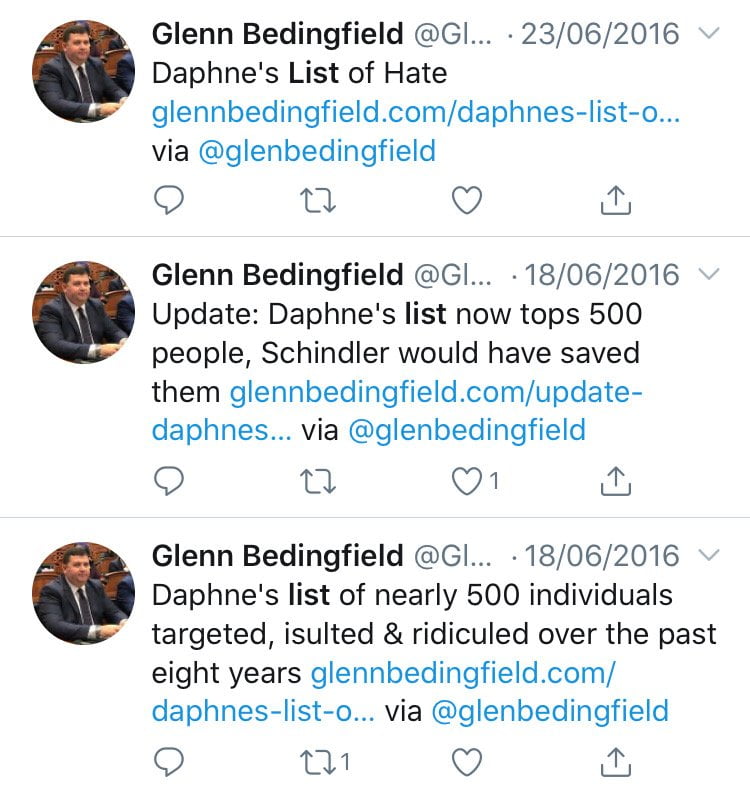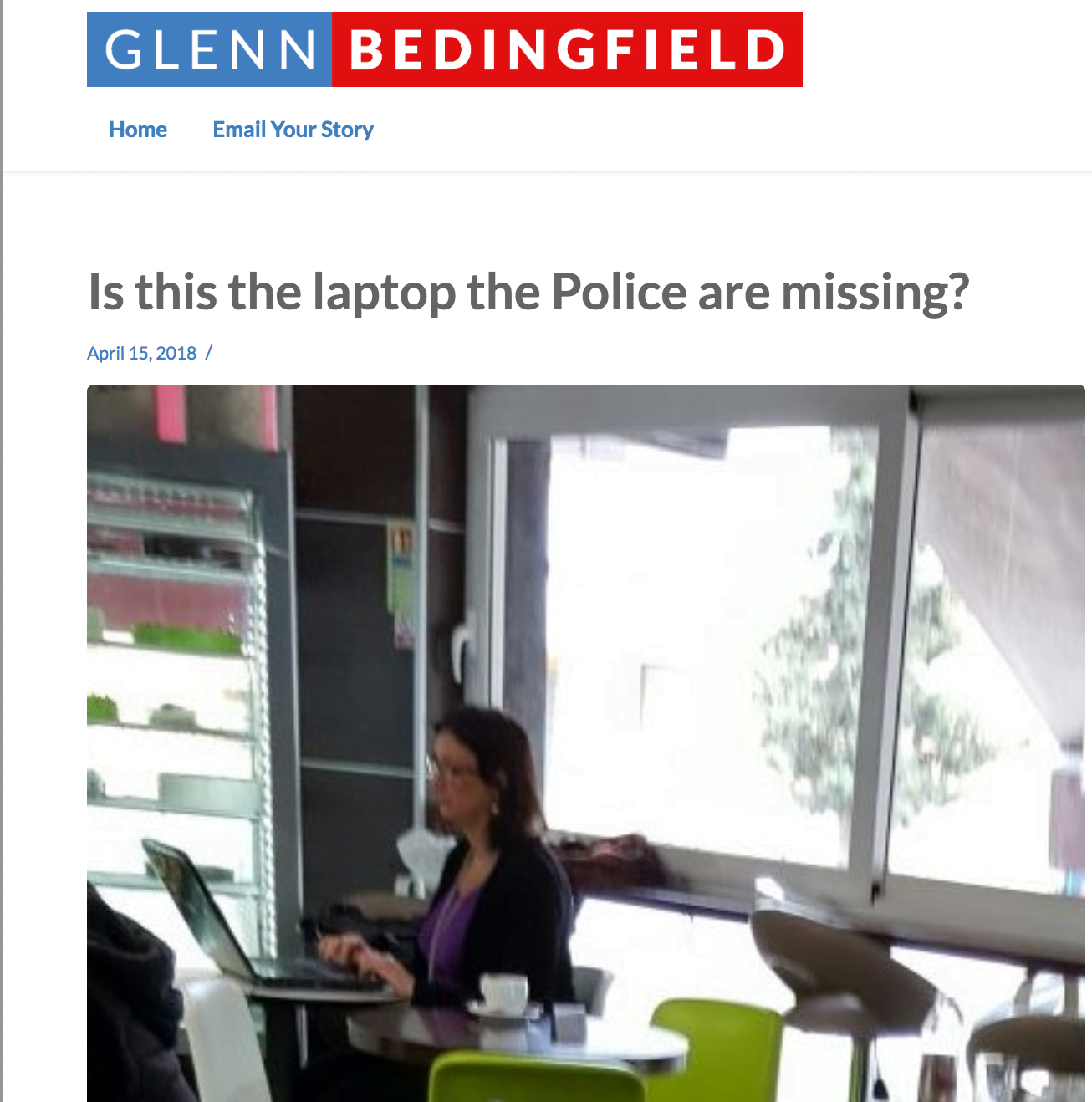Glenn Bedingfield’s testimony before the public inquiry Board today had one clear message: his blog was “retaliation” for the “attacks” by journalist Daphne Caruana Galizia, who was brutally assassinated in a car bomb on the watch of the government he forms part of in October 2017.
Bedingfield justified his posts against the journalist, that included intrusions in her private life posted on his self-titled blog while he worked at the Prime Minister’s communications office, as an “equal and opposite reaction” to the journalist’s articles.
“Your blog was in actual fact an exercise in taste your own medicine,” Judge Abigail Lofaro remarked from the Bench.
The lawyers representing Caruana Galizia’s family pointed out that 597 posts written by him had the word “Daphne” in the title, and others on the subject of the journalist amounted to a total of some 1,000 posts on her.
Bedingfield said his blog gave “a voice to those attacked by Daphne”. He referred to a list of over 500 people whom Caruana Galizia “attacked”, which government MPs had pushed through the usual channels and accounts as ‘Daphne’s list of hate’, consisting largely of government MPs and public officials.

The family’s lawyers pointed out to Bedingfield in court on Friday that he was a public official attacking a journalist on time paid by taxpayers, but Bedingfield justified the attacks as “freedom of expression”.
“It’s either everyone has freedom of expression or nothing,” he said, skimming over the question as to whether he felt more responsibility since he was a ‘person of trust’ with the government at the time.
Bedingfield kept being reminded that he was a public official, but he kept insisting on the “equal and opposite reaction” line as though one journalist battling the State was a battle on an equal footing.
Former Chief Justice Joseph Said Pullicino, a member of the Board of Inquiry, had to again point out the obvious, telling Bedingfield that a journalist and a public official could not be put on the same level.
Bedingfield also wrote about other journalists and dissidents, effectively rendering the blog produced from his desk at the Prime Minister’s Office “while he was on a break” another tool for propaganda and disinformation.
“I worked long hours, without specific times, I would write while I was at the office, but I didn’t write when I was working; I used to stop, take a break and write a post”.
When the Board of Inquiry asked about a blog post that implied the family was involved in the murder, Bedingfield said he was referring to Caruana Galizia’s family “creating obstacles” to bring back her laptop to then blame the government.
The ‘where’s the laptop?’ line, which was a main narrative in the disinformation campaign that followed the journalist’s assassination, came into focus in the compilation of evidence against suspected mastermind Yorgen Fenech in court on Thursday.
Middleman Melvin Theuma, given a presidential pardon to reveal what he knows on the crime, said Fenech was keen to have the laptop given to the Malta police in a context where revelations showed that those accused were being informed on developments in the investigation.

Glenn Bedingfield’s blog pushed the government’s disinformation narratives.
Fenech felt it would have served his situation better if the content of the laptop was in the hands of Maltese authorities, as opposed to German authorities, fearing it would reveal she was working on Electrogas where he played a central role.
Bedingfield’s is the latest in testimonies by the communications’ staff at Castille showing how communication was weaponised, used to provoke, mislead and influence the public in numerous insidious ways.
A government in a ‘normal’ democratic country does not have MPs “retaliating” against a journalist in the Maoist style of naming and shaming. There are press freedom laws that serve to both protect freedom of expression as well as safeguard the reputation of those affected by erroneous or false reporting.













